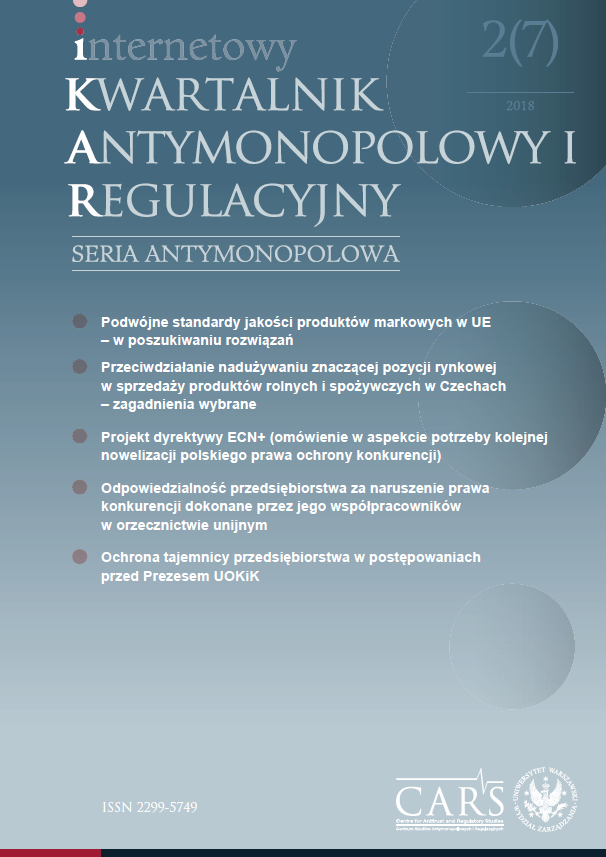Czy informacje dostarczone przez wnioskującego o leniency mogą pojawić się w wersji jawnej decyzji stwierdzającej naruszenie? Glosa do wyroku TS z 14 marca 2017 r. w sprawie C-162/15 P Evonik Degussa GmbH przeciwko Komisji
May Information Provided by a Leniency Applicant Be Included in a Public Version of an Infringement Decision? Case comment to the judgement of the Court of Justice of 14 March 2017 in case C-162/15 P Evonik Degussa GmbH v the Commission
Author(s): Patrycja SzotSubject(s): Economy, Law, Constitution, Jurisprudence, Business Economy / Management, Law on Economics
Published by: Wydawnictwo Naukowe Wydziału Zarządzania Uniwersytetu Warszawskiego
Keywords: cartel; publication of the decision; public version of the decision; justified expectations; equality of treatment; leniency; access to file; damages directive; private enforcement; damages claims;
Summary/Abstract: The Article discusses the judgment of the Court of Justice in the Evonikcase and the key findings stemming from it. Considered in particular are the following issues: the scope of a Hearing Officer’s competences and legal grounds which leniency applicants may invoke in defence of their confidentiality claims. Further, the limits concerning the use of information provided in a leniency application are discussed, in particular the prohibition on including quotations from the leniency application and information enabling the identification of the source of other information provided in leniency documents. The author also examines the EU Commission’s broad competences to decide on how much information provided in a leniency application may be disclosed in the public versions of resulting infringement decisions. The current standard for the professional secrecy obligation is also considered. The author’s key conclusion is that the judgment reinforces the EU Commission’s discretion in deciding what information provided by a leniency applicant should be publicized, to the benefit of plaintiffs seeking damages in private enforcement actions. The judgment not only remains in line with the main principles of the Damages Directive, but also provides the EU Commission with new opportunities to stimulate the enforcement of competition law enforcement by way of private litigation. At the same time, however, it will increase uncertainty on the part of leniency beneficiaries. In the author’s view, although the decision to broaden the Hearing Officer’s competences is welcomed, chances are low that leniency applicants will defend their confidentiality claims with respect to information contained in the leniency documentation on the basis of the principle of justified expectations and equality of treatment.
Journal: internetowy Kwartalnik Antymonopolowy i Regulacyjny (iKAR)
- Issue Year: 7/2018
- Issue No: 2
- Page Range: 88-105
- Page Count: 18
- Language: Polish

